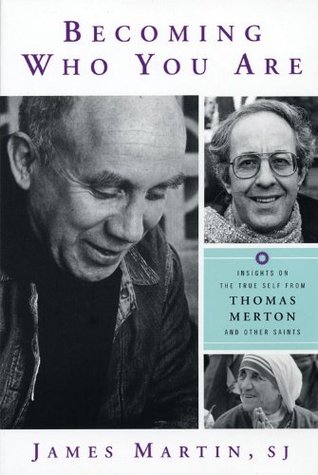More on this book
Community
Kindle Notes & Highlights
by
James Martin
Read between
March 29, 2019 - February 5, 2022
“But when I read the works of William Penn and found them to be as supernatural as the Montgomery Ward catalog, I lost interest in the Quakers.”
I am still full of many things that keep me from being who I am meant to be.
Merton wrote that the quest for the true self is part of the quest to let God know you as you are.
Much of this journey involved my letting go of the need to be somebody else.
Nobody in particular, mind you, just a feeling that I needed to be different. Early in the novitiate, I thought that being holy meant changing an essential part of who I was, suppressing my personality, not building on it. I was eradicating my natural desires and inclinations, rather than asking God to sanctify and even perfect them. Here’s the way I thought about it: I knew that I certainly wasn’t a holy person, so therefore being holy must mean being a different person. As strange as it sounds, I thought that being myself
meant being someo...
This highlight has been truncated due to consecutive passage length restrictions.
And they had to face the same essential spiritual poverty that all of us face: the poverty of knowing our own human limitations.
The tendency to compare is a great trap in the spiritual life, especially today, when much in our culture tempts us to think that if only we were someone else—better looking, better educated, better moneyed—we would be happier. All we need to do is to be other than who we are. Why is this such a dangerous temptation? For many reasons. First, because it leads to despair. Trapped by our false ways of perceiving other people’s lives, we denigrate our own lives, and thus devalue ourselves.
One is freed from this spiritual prison not only by reflecting more realistically on the sometimes painful lot of others, as well as accompanying them into their suffering, but also by reflecting on the blessings in our own lives. In other words, by engaging in the practice of gratitude.
Coming to accept themselves in this way, and, more importantly, allowing God to love them as they are, not as they might wish they could be, or how society might want them to be, is an important step in one’s relationship with God. God loves us as we are because we are as God made us.
included working fifteen hours a week in a “ministerial” setting. Much of this work was to be with the poor in the area, and would help us understand the needs of the poor, as well as the graces that come from working with and alongside them. We called these ministries our “apostolates” (the kind of work that an apostle would do).
Ironically, this very fear sealed the novice director’s decision to send me.
There is an old Jesuit practice called agere contra, which means, in essence, “to act against.” If there is a part of ourselves that is not free, we try to “act against” that part in order to free ourselves from resistance in that area.
For example, if a novice fears working with homeless men and women, he may be asked to do just that, so as to invite him into the experience of finding God in that unexpected place and move past his fear. All of this is a way to grow in freedom and love. So when the novice director heard that I instinctively hated hospitals, he asked if my fear and revulsion might be something that I needed to be free of.
The reason why I chose to go to Chicago instead of New York or San Francisco. I never liked Chicago.
Also about self-care. It is never meant to get away from the life you have; rather, it is to build your life so that you won’t have to get away.
So how do you determine if something is an essential part of your true self or simply an unfreedom that needs to be challenged? Good question. Basically, one has to ask, “Is this part of myself keeping me from being more loving and generous? Is this keeping me from being closer to God and to other people?” If the answer is yes, perhaps it may be time to consider how you could move away from whatever prevents you from being more loving and generous.


